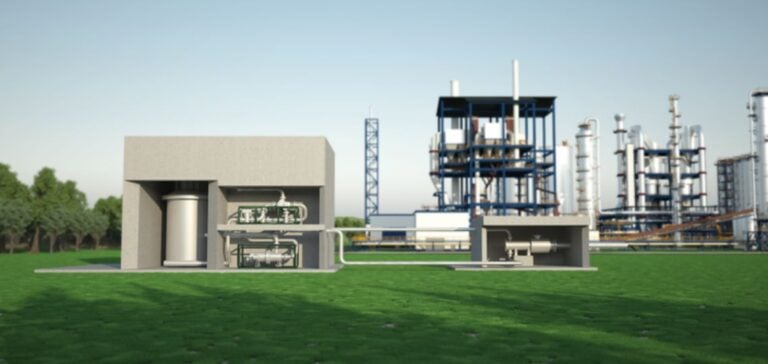Jimmy has officially applied to the French government for authorization for a 10-megawatt SMR. This innovative reactor will be installed at Bazancourt, as part of the Cristal Union/Cristanol sugar group’s industrial complex, where it will produce alcohol and bioethanol. The company has received a €32 million subsidy from the French government as part of the France Relance 2030 plan.
The reactor’s environmental objectives
This SMR, designed as a nuclear-fueled boiler, aims to supply decarbonized steam to industry by replacing traditional gas burners. The reactor technology is based on helium-cooled high-temperature reactors, a method known for its reliability and efficiency. Jimmy, founded in 2020 by a polytechnician and an HEC graduate, is positioned as a key player in the clean energy sector.
Regulatory process and implications
The application for authorization, the first of ten SMR projects monitored by the French nuclear safety authority (ASN), is the first in a process that could take at least three years. This phase will include an in-depth environmental study and a public inquiry, enabling a full and transparent examination of the project.
Future prospects and challenges
While Jimmy leads the way with his SMR, other similar projects, such as the one by Calogena and the SMR by Nuward, an EDF subsidiary, are in the pipeline. These initiatives underline a growing movement towards more flexible, less centralized energy solutions, capable of adapting to diverse industrial and urban environments.
Jimmy’s SMR could mark a significant step forward in France’s energy strategy, offering a clean alternative for heavy industry and supporting the country’s ecological transition.






















